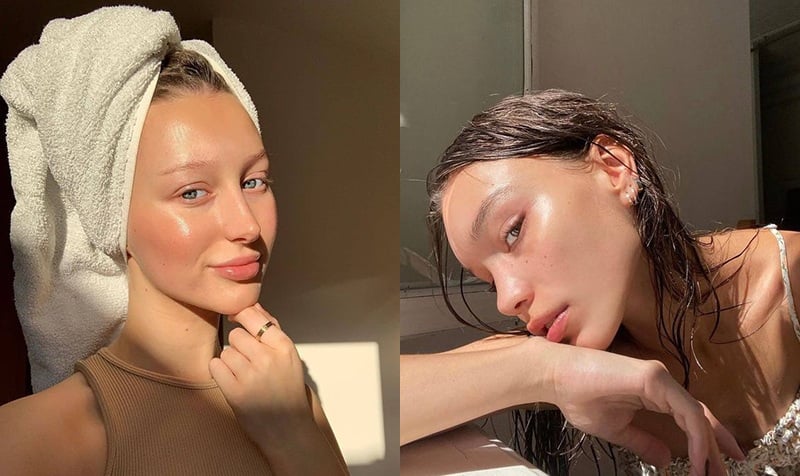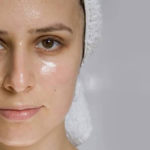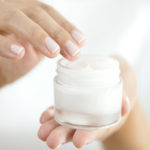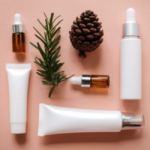Oily skin presents a shiny appearance with visible pores. The overproduction of sebum by the sebaceous glands leads to excess oil on the skin’s surface, resulting in blackheads, acne, or other imperfections. Aside from genetic factors, external influences such as environmental humidity and hormonal changes can also impact your sebum production.
Should oily skin be moisturized?
This skin type requires moisturization. When skin becomes dry, the sebaceous glands go into overdrive to compensate, leading to even oilier skin. Therefore, it is crucial to provide moisture to balance the skin.

Sebaceous glands produce more sebum when the skin is dry
Tips for moisturizing oily skin
Choose suitable products:
Opt for products with lighter formulations than traditional creams, such as moisturizing serums or gentle moisturizers. Select options that won’t clog pores or cause breakouts. Avoid creamy, waxy, or oily formulas and steer clear of pore-clogging ingredients like shea butter and vitamin E.
If you have sensitive skin that is prone to irritation, redness, itching, or rashes, look for a moisturizer containing soothing ingredients.
Time it right:
Moisturize at night, after cleansing your face with a suitable cleanser. Apply a pea-sized amount of moisturizer, dotting it evenly across your face. While you sleep, your skin and body enter a state of regeneration and repair. Therefore, moisturizing before bed helps provide essential nutrients to your skin.

Moisturizing before bed provides nutrients to the skin
Wrinkles and fine lines are signs of skin aging, and oily skin is not exempt from this process. While aging occurs more slowly in oily skin, it is not entirely immune. The answer to the question, “Should oily skin use a moisturizer?” is a definite yes, as this will help the skin appear more vibrant and slow down the aging process.
Using a moisturizer for oily skin helps balance sebum production while also alleviating dry skin and itching.
In conclusion, moisturizing is an indispensable step in oily skin care, helping to reduce sebum production and maintain hydration.



































